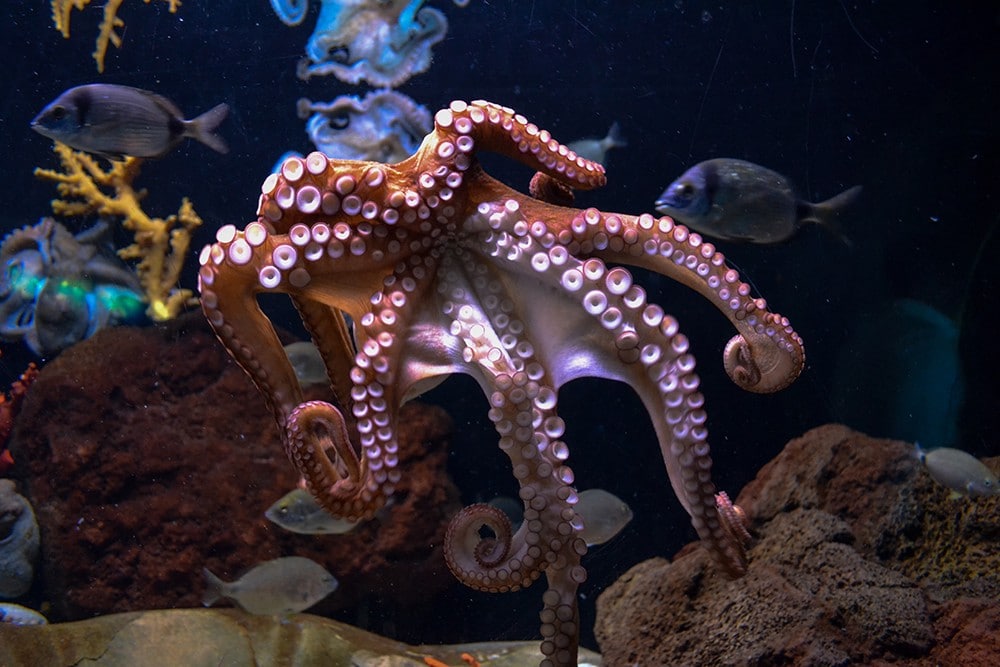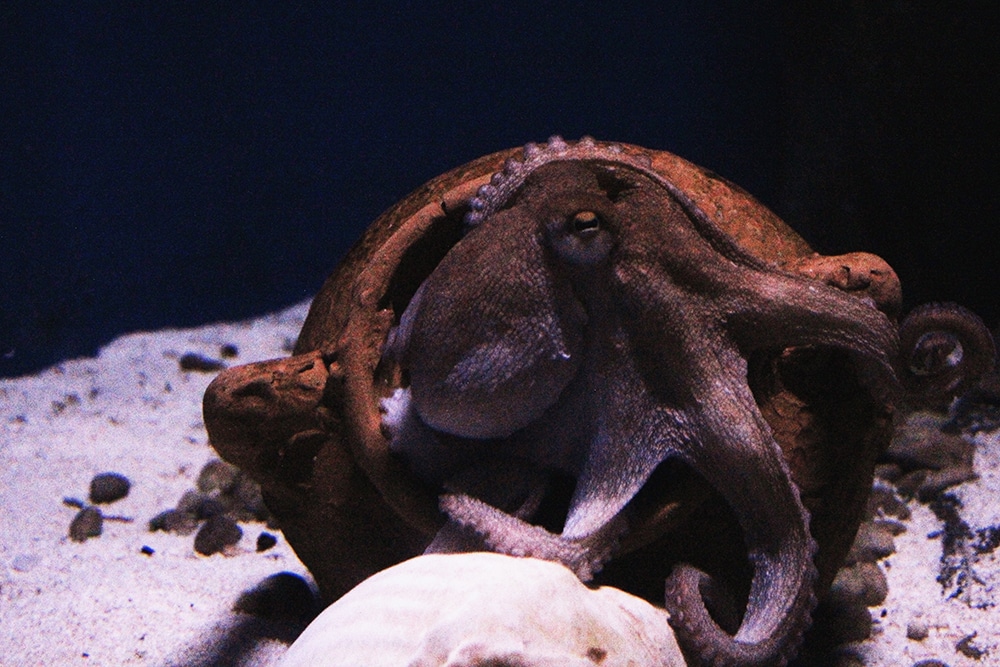When you eat seafood, you don’t think about the feeling of octopus or squid, I don’t even think I can name all the species that are served as Frutti di mare, but there are many reasons to look at these animals differently, especially cephalopods.
Across the world, an octopus is considered a culinary delicacy, and the demand for octopus is growing year by year.
Of the estimated annual catch of 350,000 tonnes, two-thirds go to Asian countries, but Europeans also love to absorb octopus, especially Spaniards and Italians who import octopus on a large scale.
Growing hunger for cephalopods
To satisfy the growing hunger of people, of course, it was decided in some other and easier manner to obtain meat from these creatures. The Japanese are already ready to open the first octopus farm in 2020, while in Spain there is extensive research on the breeding of these animals on sea ranches or special farms on land.
However, there is considerable disagreement on the part of scientists and philosophers about plans related to such breeding, primarily taking into account the impact on the environment and ethical reasons.
Ugh… a new horror looming — intensive octopus farming. Can’t we leave these remarkable and intelligent beings alone?- Peter Singer (@PeterSinger) January 27, 2019
Mass farming is evil
Mass production of octopus would repeat the same mistakes that we make in keeping animals on land when it comes to high environmental impact, animal welfare, and we would also have to feed octopus to other animals.
Read also: Is it ethical to use animals in art?
We should, therefore, consider whether we should breed more marine animals, and not whether we can breed them. At present, it has been noted that as many as 190 countries are cultivating around 550 species of aquatic animals.

Many studies confirm that octopus is one of the most complicated and intelligent animals in the ocean. They can recognize individual human faces, solve problems (and remember responses to many months), and there is evidence that they are experiencing pain and suffering, using visual landmarks for navigation. One study found that octopuses have retained the knowledge of how to open a jar for at least five months.
However, it is difficult for many people to put on the scale of cephalopod suffering with human suffering, we know that nobody can match us in this matter, we suffer the most and we inflict the greatest pain at the same time. But back then, octopuses and some other cephalopods have a sophisticated nervous system and very large brains.
Should we breed any marine animals?
Given their special abilities, we should ask whether people should eat octopuses at all. These animals are particularly poorly adapted to life in captivity (although none should experience this, regardless of their adaptation). We do not know (still) how to ensure the welfare of aquatic animals, we still have too little research into their feelings and emotions, but this does not change the fact that we should not lock them in tight pools, cages, not only for ethical reasons but also for environmental reasons.

Another problem is the amount of feed needed to sustain the growth of octopus. It is three times the weight of the animal itself, and because they are carnivorous, their breeding threatens to put further pressure on an already heavily exploited marine ecosystem.
Octopuses are only part of the huge number of marine animals eaten by humans, and the idea of raising them in large numbers is crazy and destructive, not to mention unethical.
Let us think about what we have done on land and let us not develop further halls full of animal suffering, production halls that degrade the environment and poison the lives of many people. This is no longer a pipe dream, this nightmare is happening before our very eyes, and we continue to exploit new species and lands.
More stories in English on Medium: https://medium.com/search?q=rahela%20olszak
